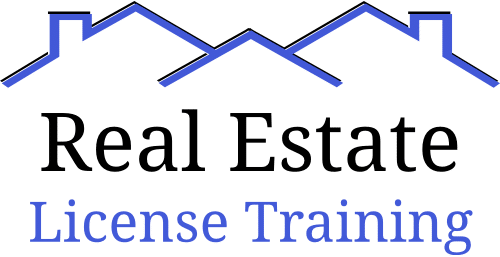So you’re thinking about becoming a real estate investor.
Great choice!
This is a very lucrative and rewarding career.
I mean, according to ZipRecruiter, real estate investors earn a national average salary of $119,731.
But how do you become a real estate investor?
Yes, you can just buy and sell properties right away – easy as that.
However, you may find yourself losing more than earning.
This is why you need to follow the specific steps on how to become a real estate investor that’s informed, knowledgeable, and wise.
So let’s dive into it!
What is a Real Estate Investor?
You’ve heard of them…
…real estate investors buying or investing in properties that they can eventually profit from.
It’s really as simple as that.
But to become successful, they have to carefully analyze the market, evaluate properties, and make smart decisions to maximize the property’s value — just to name a few things.
Some buy and sell properties for a quick profit, while others rent out their properties to tenants or develop lands for future use.
The best part is that real estate investors can work independently, in partnership, or as a group of investors.
The 7 Steps to Become a Real Estate Investor
As I said, you can just start buying and selling properties right away.
But that isn’t the best move.
If you want to be successful, you need to follow these 7 steps:
- Get educated on real estate and investing
- Research the various real estate investment types
- Build your network
- Choose your location
- Figure out your investing plan
- Secure funding
- Purchase your first real estate property
Let’s walk you through these steps.
Step 1: Get Educated on Real Estate and Investing
Educating yourself on the ins and outs of the business is important.
You don’t want to blindly invest in properties —- even if you have the capital for it.
So, how can you start?
Learn all you can about real estate and investing.
One good idea is to get a real estate license — you’ll be able to learn all about real estate, and can even practice it to gain some insight and knowledge.
If not that, you can study books and real estate courses — these are a treasure trove of knowledge.
Some real estate groups, such as the Building Owners and Managers Association and National Apartment Association offer several real estate courses to help you.
You may also check out the certification programs offered by the Harvard Extension School.
In this early stage, get all the knowledge you can about real estate and investing.
Step 2: Research the Various Real Estate Investment Types
What kind of real estate investor do you want to be?
Answering this question will help you focus on the specific things to work on.
Here are some common real estate investment types to consider:
- Wholesale Real Estate – Wholesaling is an excellent option if you’re looking to invest without spending too much. This involves purchasing properties at a discount and selling them at a higher price to other investors, often without making any improvements on the property.
- House Flipping – This requires a significant amount of capital and expertise in identifying properties with potential. This involves buying properties under market value that need renovations or repairs. You need to fix them up and sell them for a profit.
- Buying Rental Properties – This strategy provides a consistent stream of income in the form of rental payments. This involves purchasing and owning properties to rent them out. It’s worth noting that you should ensure that the rental income covers the taxes, mortgage or debt repayments, and property management if needed.
- Crowdfunding – If you have a small capital, this is a good way to start. This involves pooling your money with investors to become a part-owner in a real estate project. The downside is, you have less control over the project.
- Multi-Family Housing – This one is perfect for those looking to invest anywhere from a two-unit duplex to a 200-apartment building. The rental income of multi-family housing is more stable and higher compared to renting out other properties.
- REITs – Real estate investment trusts are the most liquid way to invest in real estate. As a REIT investor, you purchase shares on the stock market. REITs put their money into income-producing real estate and pay regular dividends.
- Commercial Real Estate – This involves purchasing commercial real estates that generates income, such as malls, offices, storefronts, and large apartment complexes.
Researching real estate investment types will help you develop a plan that aligns with your goals.
Also, remember to consider the potential benefits and drawbacks of each investment, including risks and potential returns.
Step 3: Build Your Network
Do you believe in the phrase “networking is everything”?
As a real estate investor, you should.
You will need to build relationships with experts in the industry — this will help you grow personally and professionally.
And this is why we highly recommend getting a real estate license and working in real estate for a time.
But don’t just limit it to that.
Network on social media and open houses.
Attend industry conferences and trade association gatherings.
These can help you learn more while making valuable connections with respected and experienced investors in the industry.
Moreover, networking is one of the best ways to gain insights into the best methods and procedures for your investing strategy.
It doesn’t end there!
You may want to establish good relationships with banks and lenders, a title company, and a trusted accountant to help you navigate the financial and legal aspects of real estate investing.
Step 4: Choose Your Location
Get this.
Location is SUPER important when it comes to buying, investing, selling, and renting real estate.
This can be the dealbreaker to your success or failure.
So, how do you find the perfect location for your target audience?
Let’s say your goal is to sell or rent homes to families with children.
It’s best to invest in properties near school districts or child-friendly zones.
If you’re after students or young professionals, your top priority should be a location near colleges, trains, subways, or nightlife.
No matter who your target audience is, doing location research will help you make the right decision.
So start exploring for that perfect location!
Step 5: Figure Out Your Investing Plan
Now that you have your location — it’s time to start planning everything.
This should map your goals, expected cost, projected revenue, and estimated return on investment (ROI)…
The plan should reflect desired outcomes and potential drawbacks…
You should detail past and current real estate market trends…
Make sure everything is set to go.
It should also lead you to decide if you want to be a solo real estate investor or join a group.
If you join a group, plan what each member’s role will be, as well as their contributions, assets, and skills.
Step 6: Secure Funding
Where do real estate investors get their funds?
Well, some use their own money.
This is especially true for group investments.
Others like to apply for real estate investor mortgage loans, home equity loans, 203k loans, etc.
This is usually needed if you’re flying solo and carrying all the finances on your shoulder.
Of course, always, ALWAYS check the loan guidelines, such as eligibility requirements, down payments, interest rates, pay-off timetable, and additional funds for property improvement, among other things.
Make sure the funds match the budget that you planned out.
Step 7: Purchase Your First Real Estate Property
The beginning of your real estate investor career starts now!
With your location, plans, and funding in place, you’re now ready to invest in your first real estate property.
Now, there are several ways to make your first purchase.
One option is to invest in a trust, which can provide access to a diversified portfolio of properties without requiring direct management on your part.
Alternatively, you may choose to purchase a property that you can manage and sell on your own. If so, you should also work on the steps to becoming a property manager.
Remember, in this stage, it’s important to circle back to your plan and consider your target audience.
And once you make your purchase, you can start working on it — whether that’s to look for a buyer or renter right away or improve it first.
Frequently Asked Questions About Real Estate Investors
How Much Do Real Estate Investors Earn?
According to Talent.com, the national average earning for real estate investors is $100,000 per year or $48 per hour.
Of course, if you’re just starting out, you can expect an average of around $65,613 per year.
As for the experts, they can earn an average of $150,000 a year.
Overall, you can expect real estate investors to earn a LOT.
How Does a Real Estate Investor Make Money?
A real estate investor can make money in many ways.
Here are just a few:
- Property Appreciation
- Rental income
- Flipping properties
- Tax benefits
- Equity
What Are the Common Mistakes to Avoid as a Real Estate Investor?
Investing in real estate comes with its fair share of risks and potential pitfalls.
Here are some of the common mistakes that can happen even with the most experienced investors:
- Overestimating potential profits
- Failing to thoroughly research investment properties
- Underestimating expenses
- Failing to have a solid investment plan in place
To avoid these, it’s important to conduct thorough market research and due diligence, account for all expenses, and develop a clear investment plan.
Most importantly, stay informed about changing marketing conditions and adapt your strategies as needed to achieve long-term success.
Conclusion
And that is how to become a real estate investor.
Yes, you can choose to skip all these steps and get started right away.
But we’re almost sure you won’t go far.
If you want long-term success and earn BIG, you need to be diligent in following these steps — starting with the proper education.
From there, you can work your way to purchasing your first real estate property — and more and more as time goes by.
So best of luck!

